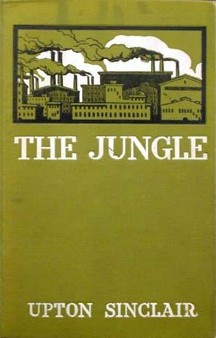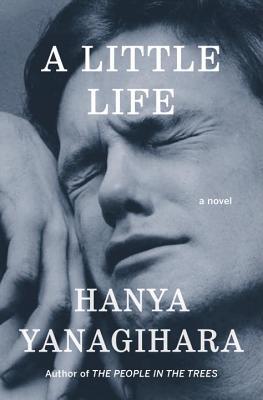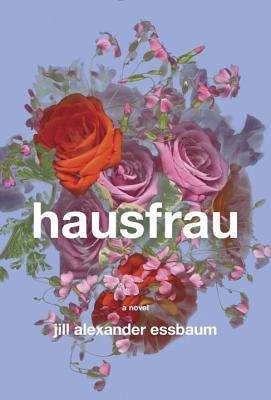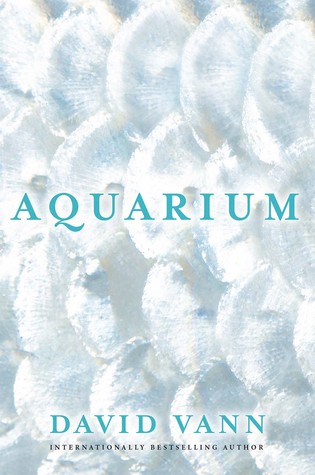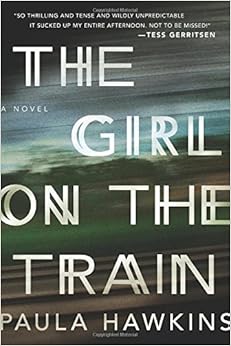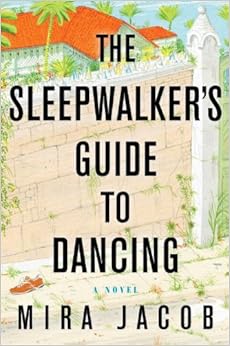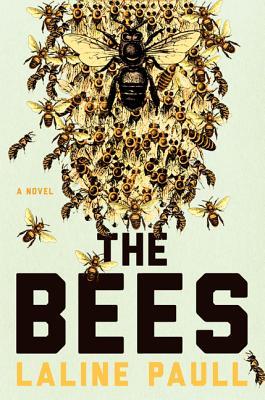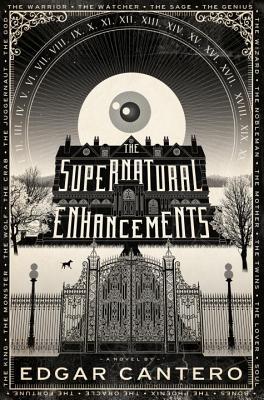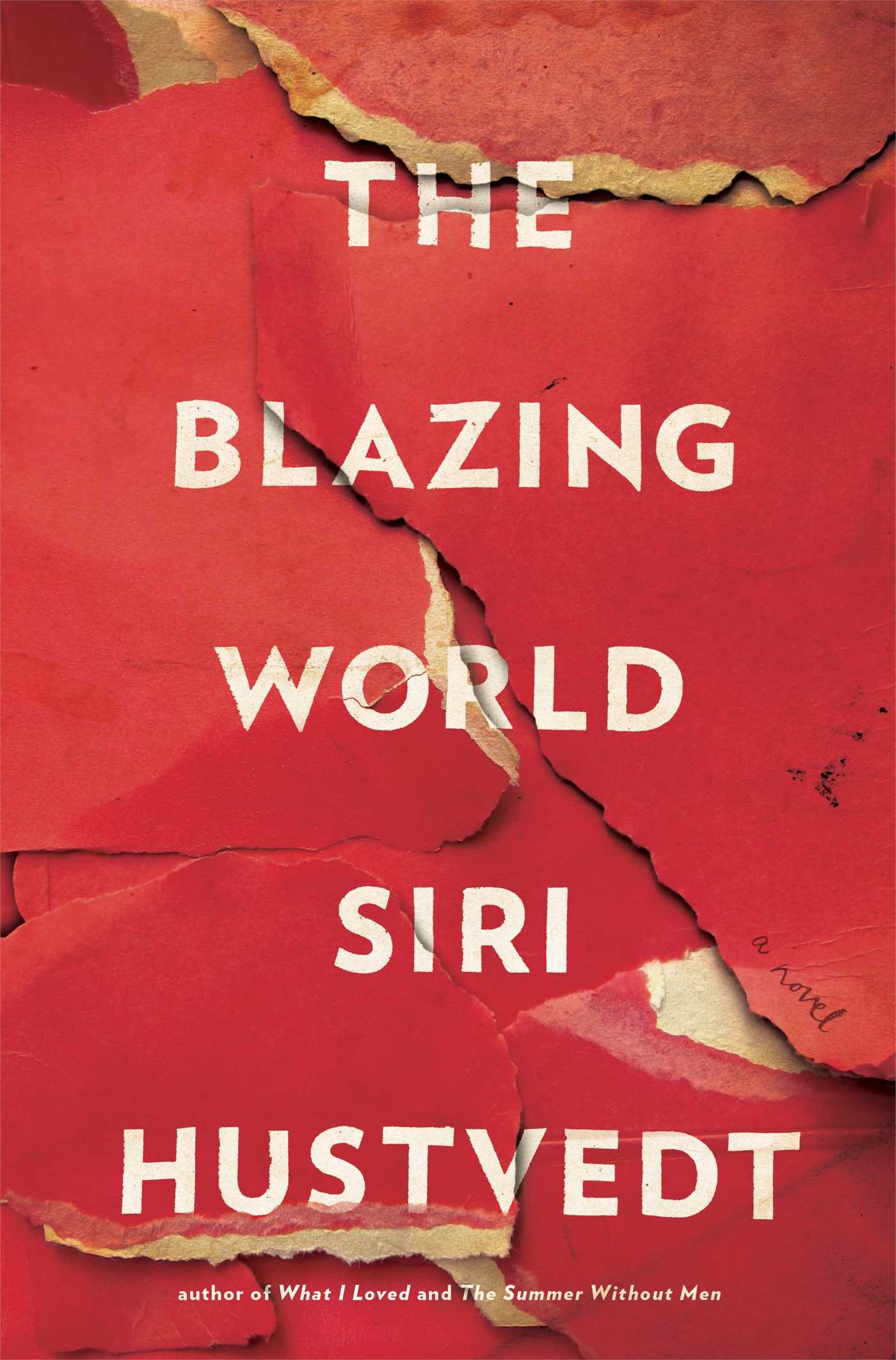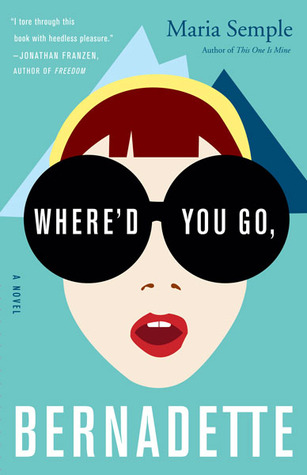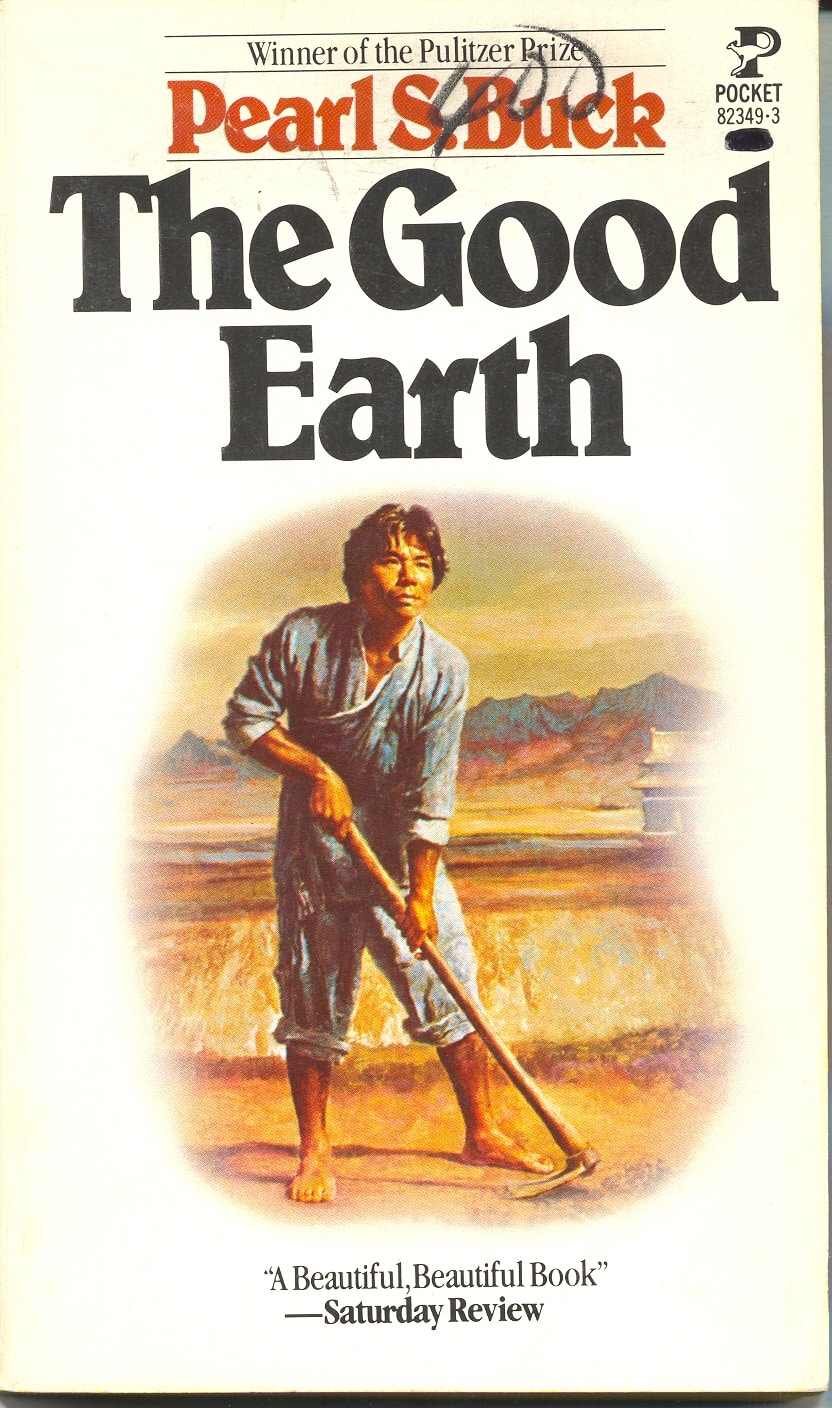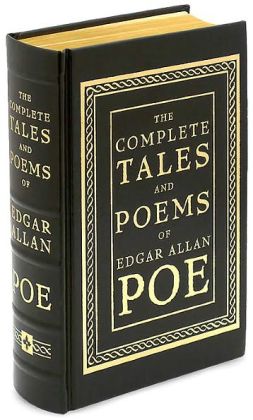News, reviews, and ideas you can use from librarians and library staff at RPL
Showing posts with label literary fiction. Show all posts
Showing posts with label literary fiction. Show all posts
Friday, December 09, 2016
Richmond's a Real Person
This fall the Main Library hosted the Richmond Zine Fest, an exciting frenzy of do-it-yourself printed matter. Richmond in fact has a long history of forward-thinking publishing, stretching as far back as the Southern Literary Messenger, edited by Edgar Allan Poe, and, in the 1920s, the ambitious “little magazine,” The Reviewer.
Between the Messenger and The Reviewer the South went through a period that caused H.L. Mencken to refer to it as something of a cultural desert. In 1921 the book section of the Richmond Evening-Journal closed, and its editors decided at a party in the Fan to continue reviewing books and publishing fiction and to prove Mencken wrong. Emily Tapscott Clark, The Reviewer’s first editor (pictured below), remembers someone simply stating: “Let’s start a little magazine.”
That magazine, The Reviewer, sought to be both regional and experimental, to see past the mists of the Old South towards new literary forms. In its first issue Mary Johnson recalled a man who, after visiting Richmond for the first time, said, “‘I shan’t let it be the last time. Richmond’s a Real Person!” Johnson agreed, and extended the sentiment: “A real person always has literary value.” Publishing from and about this real entity meant exploring new approaches to literature, dispelling old myths and finding new ones.
Credited with prompting the Southern Literary Renaissance, The Reviewer published work by Ellen Glasgow (who lived not far from the Main Library), Gertrude Stein, and English stylist Ronald Firbank, whose eight short novels remain as challenging as they are hilarious. Reviewer editor Hunter Stagg (seen above as painted by Richmond-native Berkeley Williams) went on to spend time with Firbank in Europe, furthering a bridge between The Reviewer and the international avant-garde.
After 35 issues and the departure of editors Clark and Stagg, The Reviewer moved to Chapel Hill in 1925 and from there to Dallas, where it merged with The Southwest Review and continues to publish. The Main Library holds all original issues of the Richmond-based Reviewer as well as Clark’s memoir of her time at The Reviewer, Innocence Abroad.
Pioneering publishing lives on in Richmond ninety years after The Reviewer changed headquarters. Considering the daring nature of their magazine, Clark and Stagg would have been perfectly at home setting up a table at October’s Zine Fest, perhaps talking up the Gertrude Stein piece in the latest issue or handing out button badges that say: “Richmond’s a Real Person.”
Thursday, April 21, 2016
It's International Dublin Literary Award Time!
 |
| Behold! The Richmond Public Library Nominees for the International Dublin Literary Award! |
 It's time once again to nominate a few good books for the International Dublin Literary Award. Since we've already sung the praises of our three nominees for The Award on this blog, I thought I would recommend some "readalikes" for our picks to you. The thing about books like these, the books that stand out as completely outstanding, award-worthy, one-of-a-kind and all that, is that they can be tough to compare to anything else. For A Little Life, I would look for other literary novels featuring complex characters, friendship and love, haunting secrets, abuse and trauma. A search for "five-star, gut-punchingly sad, haunt-you-forever, fiction" not surprisingly does not compute, and looking under subject headings like Families--Fiction, Bildungsromans, and Domestic Fiction just doesn't quite cover it. As I mentioned in an earlier review, Yanagihara's second, and thus far most massive melancholy masterpiece, is a bit of a tough sell when people ask me for a personal recommendation, even though it is easily one of the best books I've ever read. Maybe if I just hand a box of tissues over with the book people will get the idea.
It's time once again to nominate a few good books for the International Dublin Literary Award. Since we've already sung the praises of our three nominees for The Award on this blog, I thought I would recommend some "readalikes" for our picks to you. The thing about books like these, the books that stand out as completely outstanding, award-worthy, one-of-a-kind and all that, is that they can be tough to compare to anything else. For A Little Life, I would look for other literary novels featuring complex characters, friendship and love, haunting secrets, abuse and trauma. A search for "five-star, gut-punchingly sad, haunt-you-forever, fiction" not surprisingly does not compute, and looking under subject headings like Families--Fiction, Bildungsromans, and Domestic Fiction just doesn't quite cover it. As I mentioned in an earlier review, Yanagihara's second, and thus far most massive melancholy masterpiece, is a bit of a tough sell when people ask me for a personal recommendation, even though it is easily one of the best books I've ever read. Maybe if I just hand a box of tissues over with the book people will get the idea. |
| So much tissue. |
 |
| All of these things appeal to me. |
While you decide whether or not you can handle the agonizing beauty that is A Little Life by Hanya Yanagihara, check out the much slimmer I Refuse by Per Petterson (2014), Did You Ever Have a Family (2015) by Bill Clegg, and Aquarium (2015) by David Vann. These each share much of the same BookFeel and are thematically kin, with a heavy emphasis on "heart wrenching".
 While you wait for The Fishermen by Chigozie Obioma, try The Lowland (2013) Jhumpa Lahiri and Dust (2014) by Yvonne Adhiambo Owuor. NoveList uses the following BookFeel to characterize The Fishermen:
While you wait for The Fishermen by Chigozie Obioma, try The Lowland (2013) Jhumpa Lahiri and Dust (2014) by Yvonne Adhiambo Owuor. NoveList uses the following BookFeel to characterize The Fishermen:- Character-driven
- Haunting, Atmospheric
- Lyrical
I would not have immediately come up with The Lowland to pair with The Fishermen but after examining the relative BookFeel I would score this comparison a 3.9 out of 5 on my completely arbitrary personal scale.
 The Sympathizer is seriously not to miss, but also be sure to pick up Dragonfish (2015) by Vu Tran, and All our Names (2014) by Dinaw Mengestu.
The Sympathizer is seriously not to miss, but also be sure to pick up Dragonfish (2015) by Vu Tran, and All our Names (2014) by Dinaw Mengestu.BookFeel for The Sympathizer:
- Character-driven
- Leisurely paced
- Sardonic, Moving, Bleak
- Stylistically Complex, Compelling
You had me at sardonic.
A side note, these are my personal picks for a Sympathizer readalike because NoveList recommended Purity by Jonathan Franzen and Panic in a Suitcase by Yelena Akhtiorskaya, neither of which I wanted to second. (I just didn't really like them, OK?) While Dragonfish and All Our Names are quite different in style and narrator, both are highly original fiction dealing with identity and immigration, secrets, and cultural historical touchstones experienced from multiple perspectives.
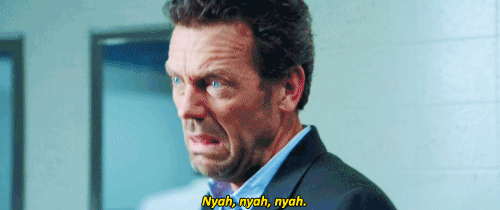 |
| Also: Whatever, Franzen. |
*Bookfeel is a word (I think I might have) made up to describe the appeal of a book. See also: Mouthfeel, a word I hate because it is gross. Ew.
 |
| It's like you've known me forever, iBistro. |
Friday, July 10, 2015
Looking to get the most out of your travels this summer? Try a taking a literary tour!
Often the setting of a novel is as important to the story as any of the characters. This is quite true in the case of the Chicago of The Jungle.Years ago, just for grins, I went on a self-guided tour of Upton Sinclair's Chicago--specifically through the meat packing district. The idea of immersing myself in the setting of a book that was so richly detailed in the text was a thrill. It wasn't a long tour as it isn't a big area but even as it has clearly been cleaned up (one would not want to spend much time in Sinclair's meat packing district at the turn of the last century) one can still see the streets and buildings, smell the smells, and hear the activity of Chicago's still functioning meat packing district...though maybe that experience isn't for everybody.
Let's journey a few thousand miles further to Istanbul, Turkey, the setting of, and major character in, Orhan Pamuk's romantic and deeply immersive literary and art experience:
The Museum of Innocence and The Innocence of Objects by Orhan Pamuk
Kemal, the wealthy scion of a prominent Istanbul family and engaged to marry the similarly wealthy Sibel, unexpectedly reunites with his childhood friend Füsun while she is working in a shop. Though from different classes and different worlds, of course they embark on a devastating love affair. Over the course of his decades long obsession, Kemal collects thousands of small objects that remind him of moments he spent with Füsun and assembles them into a museum. Many of the objects are stolen from her, many are simply discarded waste that he pockets (over 4,000 carefully documented cigarette butts make up the first exhibit in the museum), and many items are donated by her family to his museum.
In the ultimate blurring of fact and fiction, author Orhan Pamuk built a really real museum, based on the novel, in the really real neighborhood where fictional Füsun's family lived. He built the museum faithfully to his own description in the book which was written as if by fictional Orhan Pamuk, supporting character, friend and confidant of fictional Kemal. Lost yet? Good! Get lost in the book and cross over into the surreal and awesome experience of walking in a beloved fictional character's footsteps. Think Harry Potter world, only instead of wizards and magic we have a bittersweet love story for grown-ups. At the museum one can examine Füsun's dresses, butterfly earrings (even buy a pair in the gift shop!), her movie ticket stubs, dozens of small ceramic dogs (my favorite case), other pilfered trinkets, and the aforementioned lovingly described 4,213 cigarette butts in a giant wall case--complete with her shade of lipstick dotting the ends. The Innocence of Objects, a third work in this experience is the gorgeously photographed and beautifully written exhibit catalog. Once you fall in love with The Museum of Innocence, check out the exhibit catalog, The Innocence of Objects, and fall in love again. Then plan your trip to Istanbul and prepare to be amazed.
For the full experience I recommend reading both of these books and then going to the museum. (The only thing possibly missing is a film version of the book but I have no idea if one is on the way.) When you go, bring The Innocence of Objects with you, or pay the extra 10 Turkish Lira for the audio tour--otherwise you will have to rely on memory as there is very little text in the museum to remind you of what the assembled items in each case represent. Though they are an impressive collection of Turkish culture and do stand on their own as a work of art one can enjoy without even having read the novel. Photography is absolutely NOT allowed in the museum, so here are some pictures I took:
For a little background on why he did this, click here for Orhan Pamuk's Manifesto for Museums.
From the city we journey to the countryside with Memed, My Hawk by Yaşar Kemal.
Published in 1951, Yaşar Kemal's debut novel set in a remote mountain village in Eastern Turkey follows the life of Slim Memed from abused and exploited child working for a cruel landlord to legendary avenging brigand. The novel describes in great detail the setting--the mountains, small villages, and the eerily beautiful but brutal thistle fields of rural Anatolia are essential to the development and actions of the characters. I bought this book in the airport in anticipation of an excruciatingly long layover and selected it for the contrast of hiking rural Anatolia after the very urban experience of reading Pamuk in Istanbul. Books have a way of taking you there, and taking you back. Before Istanbul we rented a car and drove through the countryside to an inn near Midas City (Midas Han, if you find yourself off the beaten path, is pretty much the best thing ever) to hike around the remains of the Phrygian kingdom, which lasted from about 1200 to 700 BC and was home to the Gordias and King Midas. The mountains, the villages, and the brutal fields of thistles, were there just as described in Memed, My Hawk, as well as some amazing hiking around really cool tombs and monuments.
So just for fun in the comments, tell us your vacation destination (real or wishful thinking) and we will reply with a book recommendation to round out the experience. Bon Voyage!
Let's journey a few thousand miles further to Istanbul, Turkey, the setting of, and major character in, Orhan Pamuk's romantic and deeply immersive literary and art experience:
The Museum of Innocence and The Innocence of Objects by Orhan Pamuk
 |
|  |
 |
| Sunset on the posh streets of Beyoğlu, where Kemal roamed |
In the ultimate blurring of fact and fiction, author Orhan Pamuk built a really real museum, based on the novel, in the really real neighborhood where fictional Füsun's family lived. He built the museum faithfully to his own description in the book which was written as if by fictional Orhan Pamuk, supporting character, friend and confidant of fictional Kemal. Lost yet? Good! Get lost in the book and cross over into the surreal and awesome experience of walking in a beloved fictional character's footsteps. Think Harry Potter world, only instead of wizards and magic we have a bittersweet love story for grown-ups. At the museum one can examine Füsun's dresses, butterfly earrings (even buy a pair in the gift shop!), her movie ticket stubs, dozens of small ceramic dogs (my favorite case), other pilfered trinkets, and the aforementioned lovingly described 4,213 cigarette butts in a giant wall case--complete with her shade of lipstick dotting the ends. The Innocence of Objects, a third work in this experience is the gorgeously photographed and beautifully written exhibit catalog. Once you fall in love with The Museum of Innocence, check out the exhibit catalog, The Innocence of Objects, and fall in love again. Then plan your trip to Istanbul and prepare to be amazed.
For the full experience I recommend reading both of these books and then going to the museum. (The only thing possibly missing is a film version of the book but I have no idea if one is on the way.) When you go, bring The Innocence of Objects with you, or pay the extra 10 Turkish Lira for the audio tour--otherwise you will have to rely on memory as there is very little text in the museum to remind you of what the assembled items in each case represent. Though they are an impressive collection of Turkish culture and do stand on their own as a work of art one can enjoy without even having read the novel. Photography is absolutely NOT allowed in the museum, so here are some pictures I took:
 |
|
|  |
 |
| The cigarettes! I borrowed this photo from the internet because the guard could see me trying to sneak a photo. First rule of literary traveling: Don't get kicked out! |
From the city we journey to the countryside with Memed, My Hawk by Yaşar Kemal.
Published in 1951, Yaşar Kemal's debut novel set in a remote mountain village in Eastern Turkey follows the life of Slim Memed from abused and exploited child working for a cruel landlord to legendary avenging brigand. The novel describes in great detail the setting--the mountains, small villages, and the eerily beautiful but brutal thistle fields of rural Anatolia are essential to the development and actions of the characters. I bought this book in the airport in anticipation of an excruciatingly long layover and selected it for the contrast of hiking rural Anatolia after the very urban experience of reading Pamuk in Istanbul. Books have a way of taking you there, and taking you back. Before Istanbul we rented a car and drove through the countryside to an inn near Midas City (Midas Han, if you find yourself off the beaten path, is pretty much the best thing ever) to hike around the remains of the Phrygian kingdom, which lasted from about 1200 to 700 BC and was home to the Gordias and King Midas. The mountains, the villages, and the brutal fields of thistles, were there just as described in Memed, My Hawk, as well as some amazing hiking around really cool tombs and monuments.
|
|
|
|
Thursday, April 30, 2015
The Grim Reader: harrowing new fiction that's totally worth it
Sometimes a book comes along that is so outstanding, so marvelously written, that I want to tell everybody to read it, except that it is so profoundly disturbing that I find it impossible to casually recommend. I want to gush "I just read this incredibly depressing book that you might hate but should read it anyway!" but we aren't supposed to shout in the library so instead I have been saving up my recent upsetting favorites for a special post on the bleak and the beautiful. Be warned: these are not feel-good stories with happy endings. These are only "beach reads" if you plan to do a lot of weeping alone on the beach. These are books that will disturb and challenge you, make you cry and cringe and think.
A Little Life by Hanya Yanagihara*
To be perfectly honest, I don't know very many people who will take on A Little Life, fewer still who will finish it. It's big, and the face on the cover isn't exactly selling a happy ending. Midway through the 720 page book, fully 350 pages of serious investment, the reader has already endured what could be a full-length novel, chock-full of anguish, with another 370 pages to go. You might look up, completely exhausted at this point, and say to yourself "I don't think I can go on" much like the marathon runner at mile 18, or Jude St. Francis, the central character of Yanagihara's beautiful and painful epic second novel. "...but I have to know what happens" whispers the undaunted reader, and dives right back in. Readers will be so emotionally connected to Jude, and by page 350 so completely in love with him, that they will soldier on and reap the rewards, for this is a beautiful and terrible saga about friendship and secrets. Dark and deeply upsetting, Jude's tormented past is gradually revealed as his adult life is profoundly affected at every stage by both physical and emotional scars. While the book ostensibly centers on the adult lives of four friends living in New York City, the character we come to know inside and out is Jude, the trauma he has suffered, and how that trauma affects his adult relationships.
The author will push readers to their limits; she is bringing truth, and the truth hurts. Brutal? Yes. Difficult? Disturbing? Oh, yes. Challenging? Yes, indeed, and very worth your while.
* Loyal blog readers may recall that Hanya Yanagihara's debut novel, The People in the Trees, was nominated for a 2015 IMPAC Dublin Literary Award by none other than us, your Richmond Public Library bloggers/book nominators, so we might be a little partial to her work. Sadly, she did not make their shortlist this time but I expect to see big things for her in the future. Keep an eye on the blog for our 2016 nominations coming soon!
The Narrow Road to the Deep North by Richard Flanagan
A recommendation for this book might have to come with a disclaimer about graphic content: Read only with a strong stomach for graphic, clinical descriptions of the physical horrors wrought by torture, lack of clean water and sanitation, and starvation. Especially starvation. I have to admit, as have other reviewers, that the surgery scene (you'll know what I'm referring to when you get there) had me skimming ahead with one eye closed. Oh boy, does this Man Booker prize-winning, short-listed for just about everything (including the aforementioned IMPAC award), novel get vivid. Dorrigo Evans is an Australian doctor and survivor of the Thailand Burma Death Railway POW camp haunted by a love affair with his uncle's wife. The novel moves around in time and perspective, shifting between narratives of survivor and captor. Beautiful, complex, and utterly horrific, this is a love story as much as it is a war story, and a fine example of detailed character study. Flanagan's actors are authentic, complicated, and flawed, and you will feel for each and every one of them. Read it, just maybe don't read it right before going to bed.
Hausfrau by Jill Alexander Essbaum
Hausfrau, which is the German word for housewife, is the narrative of Anna Benz, American ex-pat, wife of Otto Benz, mother to three children, and serial cheater. Anna Benz is not a likable character. In fact, she's so unimprinted upon she's barely a character at all. However, one does not read literary fiction for likable characters. What one does look for in literary characters is depth, purpose, and truth, even if the character is a shallow, feckless liar. Anna is the physical manifestation of ennui. She leaves a trail of it in her wake, glimmering like the slime trail of a slug. Anna's apathy and self-absorption is total, and the reader is given little of her life before her marriage and subsequent affairs save for a few brief mentions of a willful blankness and malleability that could be quite interesting were it more developed, so that when her lies do "spin out of control" as the jacket copy promises it's not the least bit surprising. It feels like there is a statement in there somewhere about society's impossible expectations of women, that no matter what path women choose, be it career, motherhood, or some combination of everything, they are still not doing it right or not doing enough. Anna is urged to take on a hobby, to do something with herself outside of the home (besides the affairs of course, which she keeps a secret), to find something pleasurable or worthwhile, to learn German (she lives in Switzerland). Even her attempts to learn German end up being examined and criticized: "But she can't speak Schweizerdeutsch" to her husband's frustration. Nobody really knows Anna, except (maybe) the reader. Anna doesn't want to talk about her "hobby" with anyone; she lies to her Jungian analyst, eludes her few friends, and keeps her family at a distance. Throughout the story Anna emphasizes her own need for superficiality and secrecy, the right to define herself by her own terms, but after the inevitable plot turn her behavior appears to be more of an addiction than a hobby, thus removing the chief actor's only agency and the most interesting thing about her in the process. So what's the point? Is Anna just screwing with us all along? I liked this book but was frustrated by the final act. I wanted for her to own her decisions, which I suppose was the point after all. I ended up making the same unnecessary demands of Anna Benz, setting the same unrealistic standards for her, measuring her worth using my own yardstick, just like everyone else in her life does. Touché, Essbaum.
Aquarium by David Vann
Reading this book qualifies as a workout. It made me scrunch up on the edge of my seat, pace around the room, and squirm like crazy. It begins with foreboding, Vann weaving a sense of dread into every sentence without giving anything away. You don't know why you're so anxious for Caitlin but you are. You feel the tension in the eerie calm of the aquarium where she spends her afternoons waiting for her mother to get off work and the relationship she begins with a kindly old man there. In some ways, the young girl at the center of this grim, tense novel feels unrealistic; she's both naïve and wise, she seems alternately far too young and far too old for a lot of her behavior. But what 12-year-old doesn't seem that way much of the time? She's almost too real, which makes the psychological abuse she endures all the more terrifying. Caitlin's mother was traumatized as a child and through a very tense, agonizing chapter subjects her daughter to a reenactment of the nightmare that deprived her of a childhood as a twisted sort of lesson in empathy. At one point I just couldn't bear it anymore and I practically threw the book down, let out a "NOPE", only to run back to it moments later once I recovered. Without giving away too much about the ending I'll just say I didn't totally buy it, but after the agony Vann inflicts on Caitlin and the reader it was a relief to finally exhale. Overall Aquarium is suspenseful and scary, a finely crafted, tightly wound study in what goes on behind closed doors and the legacy of abuse.
A Little Life by Hanya Yanagihara*
To be perfectly honest, I don't know very many people who will take on A Little Life, fewer still who will finish it. It's big, and the face on the cover isn't exactly selling a happy ending. Midway through the 720 page book, fully 350 pages of serious investment, the reader has already endured what could be a full-length novel, chock-full of anguish, with another 370 pages to go. You might look up, completely exhausted at this point, and say to yourself "I don't think I can go on" much like the marathon runner at mile 18, or Jude St. Francis, the central character of Yanagihara's beautiful and painful epic second novel. "...but I have to know what happens" whispers the undaunted reader, and dives right back in. Readers will be so emotionally connected to Jude, and by page 350 so completely in love with him, that they will soldier on and reap the rewards, for this is a beautiful and terrible saga about friendship and secrets. Dark and deeply upsetting, Jude's tormented past is gradually revealed as his adult life is profoundly affected at every stage by both physical and emotional scars. While the book ostensibly centers on the adult lives of four friends living in New York City, the character we come to know inside and out is Jude, the trauma he has suffered, and how that trauma affects his adult relationships.
The author will push readers to their limits; she is bringing truth, and the truth hurts. Brutal? Yes. Difficult? Disturbing? Oh, yes. Challenging? Yes, indeed, and very worth your while.
* Loyal blog readers may recall that Hanya Yanagihara's debut novel, The People in the Trees, was nominated for a 2015 IMPAC Dublin Literary Award by none other than us, your Richmond Public Library bloggers/book nominators, so we might be a little partial to her work. Sadly, she did not make their shortlist this time but I expect to see big things for her in the future. Keep an eye on the blog for our 2016 nominations coming soon!
The Narrow Road to the Deep North by Richard Flanagan
A recommendation for this book might have to come with a disclaimer about graphic content: Read only with a strong stomach for graphic, clinical descriptions of the physical horrors wrought by torture, lack of clean water and sanitation, and starvation. Especially starvation. I have to admit, as have other reviewers, that the surgery scene (you'll know what I'm referring to when you get there) had me skimming ahead with one eye closed. Oh boy, does this Man Booker prize-winning, short-listed for just about everything (including the aforementioned IMPAC award), novel get vivid. Dorrigo Evans is an Australian doctor and survivor of the Thailand Burma Death Railway POW camp haunted by a love affair with his uncle's wife. The novel moves around in time and perspective, shifting between narratives of survivor and captor. Beautiful, complex, and utterly horrific, this is a love story as much as it is a war story, and a fine example of detailed character study. Flanagan's actors are authentic, complicated, and flawed, and you will feel for each and every one of them. Read it, just maybe don't read it right before going to bed.
Hausfrau, which is the German word for housewife, is the narrative of Anna Benz, American ex-pat, wife of Otto Benz, mother to three children, and serial cheater. Anna Benz is not a likable character. In fact, she's so unimprinted upon she's barely a character at all. However, one does not read literary fiction for likable characters. What one does look for in literary characters is depth, purpose, and truth, even if the character is a shallow, feckless liar. Anna is the physical manifestation of ennui. She leaves a trail of it in her wake, glimmering like the slime trail of a slug. Anna's apathy and self-absorption is total, and the reader is given little of her life before her marriage and subsequent affairs save for a few brief mentions of a willful blankness and malleability that could be quite interesting were it more developed, so that when her lies do "spin out of control" as the jacket copy promises it's not the least bit surprising. It feels like there is a statement in there somewhere about society's impossible expectations of women, that no matter what path women choose, be it career, motherhood, or some combination of everything, they are still not doing it right or not doing enough. Anna is urged to take on a hobby, to do something with herself outside of the home (besides the affairs of course, which she keeps a secret), to find something pleasurable or worthwhile, to learn German (she lives in Switzerland). Even her attempts to learn German end up being examined and criticized: "But she can't speak Schweizerdeutsch" to her husband's frustration. Nobody really knows Anna, except (maybe) the reader. Anna doesn't want to talk about her "hobby" with anyone; she lies to her Jungian analyst, eludes her few friends, and keeps her family at a distance. Throughout the story Anna emphasizes her own need for superficiality and secrecy, the right to define herself by her own terms, but after the inevitable plot turn her behavior appears to be more of an addiction than a hobby, thus removing the chief actor's only agency and the most interesting thing about her in the process. So what's the point? Is Anna just screwing with us all along? I liked this book but was frustrated by the final act. I wanted for her to own her decisions, which I suppose was the point after all. I ended up making the same unnecessary demands of Anna Benz, setting the same unrealistic standards for her, measuring her worth using my own yardstick, just like everyone else in her life does. Touché, Essbaum.
Reading this book qualifies as a workout. It made me scrunch up on the edge of my seat, pace around the room, and squirm like crazy. It begins with foreboding, Vann weaving a sense of dread into every sentence without giving anything away. You don't know why you're so anxious for Caitlin but you are. You feel the tension in the eerie calm of the aquarium where she spends her afternoons waiting for her mother to get off work and the relationship she begins with a kindly old man there. In some ways, the young girl at the center of this grim, tense novel feels unrealistic; she's both naïve and wise, she seems alternately far too young and far too old for a lot of her behavior. But what 12-year-old doesn't seem that way much of the time? She's almost too real, which makes the psychological abuse she endures all the more terrifying. Caitlin's mother was traumatized as a child and through a very tense, agonizing chapter subjects her daughter to a reenactment of the nightmare that deprived her of a childhood as a twisted sort of lesson in empathy. At one point I just couldn't bear it anymore and I practically threw the book down, let out a "NOPE", only to run back to it moments later once I recovered. Without giving away too much about the ending I'll just say I didn't totally buy it, but after the agony Vann inflicts on Caitlin and the reader it was a relief to finally exhale. Overall Aquarium is suspenseful and scary, a finely crafted, tightly wound study in what goes on behind closed doors and the legacy of abuse.
Friday, January 16, 2015
Decadent Heroes: Resolve to kick back like Oblomov this winter
Confederacy of Dunces by John Kennedy Toole
One of my all-time favorite books, Toole's hilarious, and unfortunately posthumously published novel follows eccentric and hungry failure-to-launch Ignatius Reilly on his comic adventures through the French Quarter. Speaking of hungry, there is a restaurant in Chicago responsible for an extreme gastronomic creation known as the "Ignatius R.", so named for our decadent hero. Why this sandwich ended up in Chicago when our hero never leaves New Orleans is beyond me but there is no need to make travel plans to try it out. Stay warm and safe indoors and assemble the following cold leftovers between some sturdy bread: fried chicken, steak, bacon, mozzarella, lettuce, vinegar, fried shrimp, fried green tomato, mortadella, country ham, pickled okra, American cheese, lettuce, tomato, and mayo. Or you can dine as our hero does and just eat lots and lots of Paradise Hot Dogs.
Absurdistan by Gary Shteyngart
Misha Vainberg, gregarious and corpulent son of the "1,238th-richest man in Russia" desperately wants to return to his South Bronx sweetheart, Rouenna, but finds himself stuck trying to save the fictional republic of Absurdsvani. Misha is clearly something of a modern-day Oblomov and he *heavily* (sorry) references the book. If you feel the need to get out and move around for the sake of your health and sanity, Absurdistan is available as an audiobook and the voice actor, Arte Johnson, does a marvelous job not only of achieving multiple accents but also totally nailing the comedic delivery.
So there you have it. Grab a sandwich and a warm drink, or summon a man-servant à la Oblomov/Misha Vainberg, and kick back with some good books until Spring arrives.
*not possible!
What are YOU reading to keep warm and cozy? Tell us in the comments!
Friday, January 09, 2015
Best of The Best Fiction of 2014: unsung heroes edition
So you've seen just about all of the "Best of 2014" lists you can handle but you're still a little...hungry? Was there something missing from those lists? Did you notice, like we did, that they all seemed to rave over the same books, over and over and over again? I mean, sure, Fourth of July Creek was OUTSTANDING and also one of our favorites (definitely rush right out and get a copy) but what about the unsung literary heroes of 2014 fiction? Those little guys that may not have been on your radar, or the critics', but should have been lauded? Hunger no longer, readers. We at the blog have discussed and emailed and compiled and debated to come up with this list of a top five picks the critics missed in 2014.*
The Sleepwalker's Guide to Dancing is a comedic debut from Mira Jacob spanning three decades about an immigrant family’s move from India to Albuquerque, New Mexico and how they transition through the limbo of grief. We follow the deeper transition of Amina and her self-realizations within the lovingly chaotic embrace of family and tweaked traditions. Jacob creates magic from heartbreak in this first-rate, heartily satisfying story.
Also worth noting: all of our top 5 are authored by women. Perhaps this post should be sub-titled "unsung heroines"? We hope you find something new to add to your New Year "to reads" from this list. Keep an eye on the blog this year for all of our favorite books.
Happy New Year (reading)!
(*OK, so some critics did pick this book but not nearly enough in our humble opinions. We were shouting from the rooftops about it, and think you will too.)
The Hundred-Year House would make a fantastic book club selection. It's a bit of a mystery, a bit of a ghost story, a bit of a multi-generational family saga, and a lot of a page-turner discussion generator. Not that it lacked resolution, but the book seemed to leave us all with questions we had to share, and we do love a book that gives us lots to talk about.
Previously raved about on this blog and worth raving over again, The Bees tells the story of Flora 717, a big awkward sanitation worker bee who dares to bee (sorry) more than her prescribed station in life. She is special, somehow not like the other bees, and we follow her on an exciting, suspenseful, unbelievably compelling journey of self discovery. This book, quite frankly, should have been silly, but I haven't connected with an anthropomorphic bug protagonist in such a visceral way since Charlotte's Web. And for the purists out there: people who know far more about these things than we do have reported that the bee science in the book is pretty darn accurate and quite well-researched.
Knee-slappingly, spot on, deliriously hilarious,* How to Build a Girl is Caitlin Moran's first fiction and we hope she hurries up with the sequel to it (allegedly this is to be a trilogy, news of which I accepted as a late Christmas gift). Joanna Morrigan is an awkward teenage girl, but determined and resourceful, shockingly self-aware and honest, she is hell-bent on a mission to create herself in the way she wants to be.
With her debut novel, Emma Healey does something truly remarkable. Elizabeth is Missing puts the reader inside the mind of a woman who is attempting to solve the mystery of her missing friend while suffering from progressive memory loss. In less capable hands a narrator this unreliable would fall apart; the repetition would feel awkward and the whole device, gimmicky. However, Maud's sleuthing and sliding is riveting. You feel frustrated with her and terrified for her, and as Maud's obsession reveals another unsolved mystery buried deep in her past you'll think: ah, brilliant.
The Hundred-Year House would make a fantastic book club selection. It's a bit of a mystery, a bit of a ghost story, a bit of a multi-generational family saga, and a lot of a page-turner discussion generator. Not that it lacked resolution, but the book seemed to leave us all with questions we had to share, and we do love a book that gives us lots to talk about.
(Perhaps worth noting, this novel is the only non debut on our list. It it Makkai's second novel, her first being The Borrower, which I have not read *yet* but it sounds like a bit of a love-letter to librarians. This fact in no way influenced our decision to add Hundred-Year House to our esteemed list.)
Previously raved about on this blog and worth raving over again, The Bees tells the story of Flora 717, a big awkward sanitation worker bee who dares to bee (sorry) more than her prescribed station in life. She is special, somehow not like the other bees, and we follow her on an exciting, suspenseful, unbelievably compelling journey of self discovery. This book, quite frankly, should have been silly, but I haven't connected with an anthropomorphic bug protagonist in such a visceral way since Charlotte's Web. And for the purists out there: people who know far more about these things than we do have reported that the bee science in the book is pretty darn accurate and quite well-researched.
Knee-slappingly, spot on, deliriously hilarious,* How to Build a Girl is Caitlin Moran's first fiction and we hope she hurries up with the sequel to it (allegedly this is to be a trilogy, news of which I accepted as a late Christmas gift). Joanna Morrigan is an awkward teenage girl, but determined and resourceful, shockingly self-aware and honest, she is hell-bent on a mission to create herself in the way she wants to be.
(*We can show you the bruises from all the knee slapping if you don't believe us.)
Also worth noting: all of our top 5 are authored by women. Perhaps this post should be sub-titled "unsung heroines"? We hope you find something new to add to your New Year "to reads" from this list. Keep an eye on the blog this year for all of our favorite books.
Happy New Year (reading)!
Your Bloggers,
Natalie, Ellen, and Tonya
Friday, November 07, 2014
Dear Reader: epistolary novels to write home about
 |
| From "Letters of Note", a most worthwhile time waster of a site (and also now a book, too) |
So just what is an epistolary novel? It’s a story told using documents such as diary entries, letters, emails, text messages, newspaper articles, web pages, scribbled notes, marginalia, pretty much any other kind of evidence you might imagine that could be strung into a narrative. One might suppose that with kids these days and the death of handwriting so goes the epistolary as well. Not so! There are a TON of these out there, some better than others, many capitalizing on zeitgeist to propel the narrative. Take for instance the Lauren Myracle series of YA books so popular a few years ago, ttyl, which was written in the form of online instant messenger conversations. And who was it that mused that the great American novel would be written on a cellphone? I personally would LOVE to see a novel written entirely in the form of incendiary YouTube comments or in a drama unfolding on Facebook. How about a novel about minor celebrity and major egos told entirely through Wikipedia article edits and the ensuing flame war on the talk pages?! Could somebody please hurry up and write that? Maybe I should...hmm.
Well, moving on:
Gorgeous, powerful, moving, best book of the year, The Blazing World has a permanent home on the "Staff Picks" shelf at Ginter Park (unless it's checked out of course). Assembled from diary entries, articles, interviews, and correspondence, the book appears to be the research project of an art historian investigating the life and career of artist Harriet Burden. It's poignant, humane, deeply insightful, and absolutely wonderful.
Dear Committee Members is a petite novel composed entirely of academic letters of reference from a brutally honest professor of creative writing who is overburdened with having to write so many letters. This slyly sensitive book is almost unbearably funny. I nearly choked to death reading this on my lunch break. If you are an academic, or love an academic, or are someone frustrated with the realities of today's academic landscape, job market, or some combination of all of the above, this will hit especially close to home.
Told through transcribed interviews conducted by the author, Jesse Ball, Silence Once Begun is a journalist's investigation into the "Narito Disappearances", a baffling crime with an equally baffling confessor at its center. While at times the epistolary device bordered on gimmicky, the story was so compelling one can easily forgive a little awkward construction.
Some well-known epistolary novels to consider:
Carrie by Stephen King
- letters, excerpts, clippings, articles
- diary
- beautifully illustrated correspondence
- correspondence
- letters to an anonymous stranger
- duh, diary
Flowers for Algernon by Daniel Keyes
- laboratory progress reports written by the declining subject (Oh! The tears!)
The Color Purple by Alice Walker
- letters to God
Super Sad True Love Story by Gary Shteyngart
- diary entries and email
We Need to Talk About Kevin by Lionel Shriver
- letters
ttyl, ttfn, and l8r, g8r, by Lauren Myracle
Got a favorite? Add it in the comments!
Yours truly,
Natalie
*P.S.
Go Ask Alice is perhaps the one that hooked me. It is the over-the-top melodramatic "found" diary of a teenage girl spiraling out of control in a miasma of sex and drugs. It's a pretty wild trip and I totally bought that it was a real diary.
- chat room style dialogue
- correspondence
- One long letter
Got a favorite? Add it in the comments!
Yours truly,
Natalie
*P.S.
Go Ask Alice is perhaps the one that hooked me. It is the over-the-top melodramatic "found" diary of a teenage girl spiraling out of control in a miasma of sex and drugs. It's a pretty wild trip and I totally bought that it was a real diary.
Friday, June 27, 2014
13 Books I loved as a teenager
We hear a lot about YA, or young adult, literature these days, and it is constantly on my mind as of late with the frenzy of Summer Reading upon us. I have been asked for a lot of recommendations for teen readers over the past couple of weeks which has caused me to reflect on what books I immersed myself in as a teenager, way back before the recent explosion in literature published with teenagers in mind. It is probably not too surprising to find out that your librarian was a library-loving teenager, always tucked into a corner somewhere with their nose shoved in a book. It didn't take much to get me to sit still and read, in fact it probably required force to get me to do much of anything else. I usually sought out stories with a rebellious spirit and a dark side. If asked my favorite genre, I probably would have answered "horror" or just glared (teenagers!) but if asked for a list of my favorite books, this would have been it.
Yep, The Bell Jar by Sylvia Plath. I remember reading this moody American classic for the first time immediately after I bought it at Goodwill for a quarter and feeling like I had discovered some great secret. The Bell Jar follows the unraveling of the brilliant and talented Esther Greenwood into insanity. This haunting novel is especially perfect for teen girls and budding artists.
I had to read The Great Gatsby in a high school English class. I didn't love everything we had to read in school--I'm not that kind of book lover. In fact, I still hate The Scarlet Letter. There, I said it. Sorry, Hawthorne. The Great Gatsby is a fantastic read for teens, especially for anyone fascinated by the roaring 20s.
With my up-all-night reading of The Joy Luck Club began my lifelong love of multi-generational family sagas. I remember having many discussions with my mom over this novel we shared at an age when that didn't always come easy. This book could be great for a teen who is having trouble seeing eye to eye with their parents, not that there are very many of those around...*ahem*.
I still list The Women's Room as one of my all time favorites. Checked out from my high school's library, this is another novel that made me feel like I had discovered a secret world of really cool, super adult literature, and it probably influenced my adult taste in literary fiction more than anything else I've read. Young feminists will find a lot to love about this story of a woman's journey of self-discovery through marriage and children, divorce, and later-in-life college study and academia set in tumultuous mid-20th century America.
My mom gave me her much loved paperback copy of The Good Earth when I was about 12 or 13 and I read it twice. I remember many tears. Good for a teen who likes to have a good cry over a book now and then, The Good Earth is the story of a Chinese farmer, Wang Lung, and his family in agrarian China.
20 years after this book's publication, ebola is back in the news in a really horrible way so it may or may not be a good time to recommend The Hot Zone but I'm all about honesty and this book was one of my most favorite favorite reads as a teenager. I bought it at a drugstore on a family summer vacation to the mountains in 1994 because I was "really interested in viruses" at the time. The Hot Zone is the terrifying true story of a virus which is currently wreaking havoc in west Africa.
Ending up in Richmond was extra cool for me as a hardcore teenage E. A. Poe fanatic. I had memorized a good deal of "The Raven" and would quote it often, and I carried around the complete works in my backpack. Poe is excellent for lovers of horror and tragic romance, and the short story is great for teens who don't take easily to hefty novels.
What began as an act of rebellion (because my mom wouldn't let me see the movie so I checked out the book at the library and made a point to read it in front of her) ended up as another book that will remain a favorite of mine forever. A Clockwork Orange works a pretty cool message about redemption that teens will respond to into a story of a violent future taken over by criminals, and the Slavic slang used by the gangs made me want to study Russian, which I later did in college.
Gonzo journalist Hunter S. Thompson's novel Fear and Loathing in Las Vegas was another rebellious read from the Davenport (Iowa) Public Library. At least, it felt like rebellion. Depictions of alcohol and drug use abound in this raucous classic about a reporter on a long weekend road trip.
It really doesn't get better than this dark short story by Franz Kafka about a man who awakens to find himself transformed into a giant beetle. Considering all the changes one goes through at that age, it isn't surprising that The Metamorphosis strikes a chord with many a teen.
Siddhartha, first published in 1922, tells the spiritual journey of a boy from the Indian subcontinent during the time of the Buddha. This novel is peaceful, elegant, and spiritual--great for contemplative teens. I read it between shifts at the restaurant where I worked for some much needed respite from the diners.
Written in 1962 by Aleksandr Solzhenitsyn, One Day in the Life of Ivan Denisovich is a powerful story of one day in life of a man imprisoned in a gulag (prison labor camp) in Soviet Russia. It's hard to be a teenager, which I suppose is why stories of terrible struggle are so popular with them.
The novel that defined the beat generation, On the Road was written by Jack Kerouac in 1957 and has been carried around by teenagers as a badge of cool ever since. It usually needs little introduction and has inspired many a road trip across America.
We would like to know, what sort of books did you discover as a teenager? Why did they speak to you?
Happy Summer Reading!
Yep, The Bell Jar by Sylvia Plath. I remember reading this moody American classic for the first time immediately after I bought it at Goodwill for a quarter and feeling like I had discovered some great secret. The Bell Jar follows the unraveling of the brilliant and talented Esther Greenwood into insanity. This haunting novel is especially perfect for teen girls and budding artists.
I had to read The Great Gatsby in a high school English class. I didn't love everything we had to read in school--I'm not that kind of book lover. In fact, I still hate The Scarlet Letter. There, I said it. Sorry, Hawthorne. The Great Gatsby is a fantastic read for teens, especially for anyone fascinated by the roaring 20s.
With my up-all-night reading of The Joy Luck Club began my lifelong love of multi-generational family sagas. I remember having many discussions with my mom over this novel we shared at an age when that didn't always come easy. This book could be great for a teen who is having trouble seeing eye to eye with their parents, not that there are very many of those around...*ahem*.
I still list The Women's Room as one of my all time favorites. Checked out from my high school's library, this is another novel that made me feel like I had discovered a secret world of really cool, super adult literature, and it probably influenced my adult taste in literary fiction more than anything else I've read. Young feminists will find a lot to love about this story of a woman's journey of self-discovery through marriage and children, divorce, and later-in-life college study and academia set in tumultuous mid-20th century America.
My mom gave me her much loved paperback copy of The Good Earth when I was about 12 or 13 and I read it twice. I remember many tears. Good for a teen who likes to have a good cry over a book now and then, The Good Earth is the story of a Chinese farmer, Wang Lung, and his family in agrarian China.
20 years after this book's publication, ebola is back in the news in a really horrible way so it may or may not be a good time to recommend The Hot Zone but I'm all about honesty and this book was one of my most favorite favorite reads as a teenager. I bought it at a drugstore on a family summer vacation to the mountains in 1994 because I was "really interested in viruses" at the time. The Hot Zone is the terrifying true story of a virus which is currently wreaking havoc in west Africa.
Ending up in Richmond was extra cool for me as a hardcore teenage E. A. Poe fanatic. I had memorized a good deal of "The Raven" and would quote it often, and I carried around the complete works in my backpack. Poe is excellent for lovers of horror and tragic romance, and the short story is great for teens who don't take easily to hefty novels.
What began as an act of rebellion (because my mom wouldn't let me see the movie so I checked out the book at the library and made a point to read it in front of her) ended up as another book that will remain a favorite of mine forever. A Clockwork Orange works a pretty cool message about redemption that teens will respond to into a story of a violent future taken over by criminals, and the Slavic slang used by the gangs made me want to study Russian, which I later did in college.
Gonzo journalist Hunter S. Thompson's novel Fear and Loathing in Las Vegas was another rebellious read from the Davenport (Iowa) Public Library. At least, it felt like rebellion. Depictions of alcohol and drug use abound in this raucous classic about a reporter on a long weekend road trip.
It really doesn't get better than this dark short story by Franz Kafka about a man who awakens to find himself transformed into a giant beetle. Considering all the changes one goes through at that age, it isn't surprising that The Metamorphosis strikes a chord with many a teen.
Siddhartha, first published in 1922, tells the spiritual journey of a boy from the Indian subcontinent during the time of the Buddha. This novel is peaceful, elegant, and spiritual--great for contemplative teens. I read it between shifts at the restaurant where I worked for some much needed respite from the diners.
Written in 1962 by Aleksandr Solzhenitsyn, One Day in the Life of Ivan Denisovich is a powerful story of one day in life of a man imprisoned in a gulag (prison labor camp) in Soviet Russia. It's hard to be a teenager, which I suppose is why stories of terrible struggle are so popular with them.
The novel that defined the beat generation, On the Road was written by Jack Kerouac in 1957 and has been carried around by teenagers as a badge of cool ever since. It usually needs little introduction and has inspired many a road trip across America.
We would like to know, what sort of books did you discover as a teenager? Why did they speak to you?
Happy Summer Reading!
Subscribe to:
Posts (Atom)



